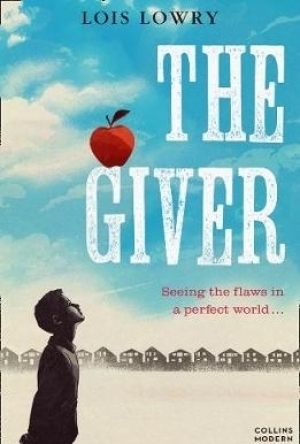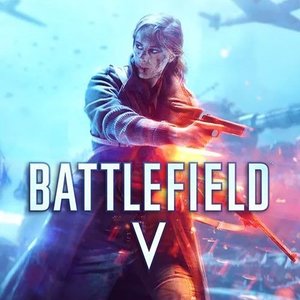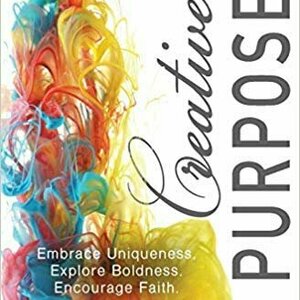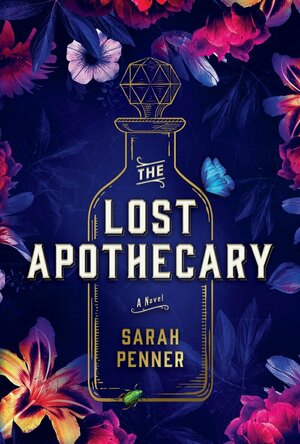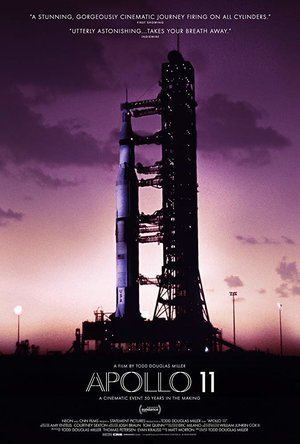Search
Search results
<a href="http://fuzzysparrow.tumblr.com/post/101435382283/review">October 2014 Book of the Month</a>
<i>I received this book for free through Goodreads First Reads.</i>
It has been over twenty years since Lois Lowry’s controversial children’s story <i>The Giver</i> was published and it certainly deserves its status as an essential modern classic. Jonas has grown up in the perfect world of the Community whose survival relies on strict rules and rituals. Adults are assigned spouses and children (one boy and one girl) as they take up their role within the society. At the beginning of the book Jonas is approaching then end of his eleventh year and feeling apprehensive about the Ceremony of Twelve where he will be assigned a job for him to do for the rest of his adult life. Jonas gets selected as the Receiver of Memory – a very rare position – and begins to experience memories from humans who lived a long time ago. For Jonas this is exciting until he begins to see the flaws in his perfect world.
Dystopian literature has become popular over the past few years and it would not be surprising if it were <i>The Giver</i> that inspired these contemporary works. Lowry claims that she did not intend for The Giver to have a sinister feel about it; she was writing an adventure story and exploring the concept of the importance of memory, but it turned out to be something much more thought provoking. As the children’s novelist Margaret Mahy (<i>The Haunting</i>) pointed out, up until the publication of this novel in 1993 Lowry was best known for her funny stories about Anastasia Krupnik resulting in <i>The Giver</i> being even more shocking and unexpected.
<i>The Giver</i> highlights that attempting to produce perfection can often result in the loss of good things as well as the bad. The notion of the ideal world may seem like a wonderful proposal, but in order to achieve it humans would have to do away with free choice as in ironing out the inequalities and injustices of the present world would result in everything becoming the same for each individual.
This is a difficult concept to grasp, particularly for a child. Although intended as a children’s series, <i>The Giver</i> and its following installments are more suitable for young adults and older. The only issue with this is that the writing style was target at a younger audience meaning that the overall story is short and lacks depth. If it were to have been written for older readers then there would have been the scope for it to become a much lengthier novel.
There are a lot of mixed reviews surrounding this book although they have changed greatly since the original publication. To begin with <i>The Giver</i> was banned in some areas however the dystopian theme has become accepted in today’s society. What many people comment on now is the oversimplification of such strong ideas. Then again, as already mentioned, it needs to be emphasized that this book was aimed at children, thus the language reflects the reading skills of its target audience.
<i>The Giver</i> is a gem of a book that not only is enjoyable but also can educate the reader on the dangers of attempting a utopian society and why it is important to retain human memories – even the bad – in order that wisdom can exist. Those who have become fans of contemporary dystopian novels, for example <i>Divergent</i> by Veronica Roth or <i>Delirium</i> by Lauren Oliver, will be sure to love this series.
<i>I received this book for free through Goodreads First Reads.</i>
It has been over twenty years since Lois Lowry’s controversial children’s story <i>The Giver</i> was published and it certainly deserves its status as an essential modern classic. Jonas has grown up in the perfect world of the Community whose survival relies on strict rules and rituals. Adults are assigned spouses and children (one boy and one girl) as they take up their role within the society. At the beginning of the book Jonas is approaching then end of his eleventh year and feeling apprehensive about the Ceremony of Twelve where he will be assigned a job for him to do for the rest of his adult life. Jonas gets selected as the Receiver of Memory – a very rare position – and begins to experience memories from humans who lived a long time ago. For Jonas this is exciting until he begins to see the flaws in his perfect world.
Dystopian literature has become popular over the past few years and it would not be surprising if it were <i>The Giver</i> that inspired these contemporary works. Lowry claims that she did not intend for The Giver to have a sinister feel about it; she was writing an adventure story and exploring the concept of the importance of memory, but it turned out to be something much more thought provoking. As the children’s novelist Margaret Mahy (<i>The Haunting</i>) pointed out, up until the publication of this novel in 1993 Lowry was best known for her funny stories about Anastasia Krupnik resulting in <i>The Giver</i> being even more shocking and unexpected.
<i>The Giver</i> highlights that attempting to produce perfection can often result in the loss of good things as well as the bad. The notion of the ideal world may seem like a wonderful proposal, but in order to achieve it humans would have to do away with free choice as in ironing out the inequalities and injustices of the present world would result in everything becoming the same for each individual.
This is a difficult concept to grasp, particularly for a child. Although intended as a children’s series, <i>The Giver</i> and its following installments are more suitable for young adults and older. The only issue with this is that the writing style was target at a younger audience meaning that the overall story is short and lacks depth. If it were to have been written for older readers then there would have been the scope for it to become a much lengthier novel.
There are a lot of mixed reviews surrounding this book although they have changed greatly since the original publication. To begin with <i>The Giver</i> was banned in some areas however the dystopian theme has become accepted in today’s society. What many people comment on now is the oversimplification of such strong ideas. Then again, as already mentioned, it needs to be emphasized that this book was aimed at children, thus the language reflects the reading skills of its target audience.
<i>The Giver</i> is a gem of a book that not only is enjoyable but also can educate the reader on the dangers of attempting a utopian society and why it is important to retain human memories – even the bad – in order that wisdom can exist. Those who have become fans of contemporary dystopian novels, for example <i>Divergent</i> by Veronica Roth or <i>Delirium</i> by Lauren Oliver, will be sure to love this series.
Gareth von Kallenbach (980 KP) rated the PC version of Battlefield V in Video Games
Jun 19, 2019
The latest chapter in the long-running Battlefield series has arrived with the release of Battlefield V. The game looks to follow up the success of Battlefield 1 with a World War 2 based game that puts players directly into the action with large and highly-detailed maps.
The solo portion of the game has players battle in some diverse locales and focuses on situations form history where the participants were not well known and did not receive much glory or attention for their deeds.
After the introduction, players have the following options as described by E.A.
The stories were very enjoyable and thought provoking though I did get a few bugs while playing like a cut-scene lock up and some clipping issues where enemy characters were lodged in walls. Thankfully issues like this were few and I was able to complete the missions as they were engrossing and kept me riveted throughout.
I especially liked the Nordlys mission where I was able to don Skis and made my way around the frozen landscapes to complete my mission.
The missions were a mix of stealth, surviving waves of enemies, and capturing objectives which is what you would expect for a game of this type. The game does allow players to have a more diverse approach to completing missions as you can use vehicles and other objects found in the game to be creative. I was able to “borrow” a plane in Under No Flag to strafe the enemy locales. When my piloting skills were not up to snuff and I crashed in a lake; I redid the mission from a direct assault approach and things went much better for me.
The game uses a regenerative health system so should you take too much damage, simply take cover until you heal up and battle on. There is also an option to heal from time to time when battling online. Players will be able to pick up new weapons and ammunition off fallen enemies as well as at various points throughout the game.
Visually the game is very appealing from the open desert to the raging blizzard in the campaigns; there is plenty of eye candy to enjoy along with the action.
The online modes were very enjoyable as there were a variety of modes for players to enjoy.
The multiplay was good and what impressed me was how fair the hit detection was. You did not have to empty an entire clip into an enemy to take them down nor did glancing shots also produce a fatal result. The maps were large and highly detailed which allowed players to try a mixture of gameplay styles to best suit their needs.
It should be noted that additional content for the game will be coming as the menus made mention of solo missions and other features that were listed as “coming soon” and we know that the Battle Royale mode for the game is not due until 2019 as an example.
It should also be noted that I did not see the Female fighter with the prosthetic arm that was featured in the announcement trailers for the game and caused division amongst fans upon the reveal for the game. If she was edited out, planned for a later date, or simply included for demonstration purposes remains to be seen. What is clear is that although fans may expect more content and be disappointed in having to wait for parts of the game to release at a later date, the game is enjoyable for fans of the series and after my experiences with the Beta; even better than expected. I look forward to seeing what the game will look like in the future once the coming updates and patches are applied, but for now; Battlefield V is a solid WW2 game with solid visuals and sound and is a worthy entry into the series.
http://sknr.net/2018/11/12/battlefield-v/
The solo portion of the game has players battle in some diverse locales and focuses on situations form history where the participants were not well known and did not receive much glory or attention for their deeds.
After the introduction, players have the following options as described by E.A.
The stories were very enjoyable and thought provoking though I did get a few bugs while playing like a cut-scene lock up and some clipping issues where enemy characters were lodged in walls. Thankfully issues like this were few and I was able to complete the missions as they were engrossing and kept me riveted throughout.
I especially liked the Nordlys mission where I was able to don Skis and made my way around the frozen landscapes to complete my mission.
The missions were a mix of stealth, surviving waves of enemies, and capturing objectives which is what you would expect for a game of this type. The game does allow players to have a more diverse approach to completing missions as you can use vehicles and other objects found in the game to be creative. I was able to “borrow” a plane in Under No Flag to strafe the enemy locales. When my piloting skills were not up to snuff and I crashed in a lake; I redid the mission from a direct assault approach and things went much better for me.
The game uses a regenerative health system so should you take too much damage, simply take cover until you heal up and battle on. There is also an option to heal from time to time when battling online. Players will be able to pick up new weapons and ammunition off fallen enemies as well as at various points throughout the game.
Visually the game is very appealing from the open desert to the raging blizzard in the campaigns; there is plenty of eye candy to enjoy along with the action.
The online modes were very enjoyable as there were a variety of modes for players to enjoy.
The multiplay was good and what impressed me was how fair the hit detection was. You did not have to empty an entire clip into an enemy to take them down nor did glancing shots also produce a fatal result. The maps were large and highly detailed which allowed players to try a mixture of gameplay styles to best suit their needs.
It should be noted that additional content for the game will be coming as the menus made mention of solo missions and other features that were listed as “coming soon” and we know that the Battle Royale mode for the game is not due until 2019 as an example.
It should also be noted that I did not see the Female fighter with the prosthetic arm that was featured in the announcement trailers for the game and caused division amongst fans upon the reveal for the game. If she was edited out, planned for a later date, or simply included for demonstration purposes remains to be seen. What is clear is that although fans may expect more content and be disappointed in having to wait for parts of the game to release at a later date, the game is enjoyable for fans of the series and after my experiences with the Beta; even better than expected. I look forward to seeing what the game will look like in the future once the coming updates and patches are applied, but for now; Battlefield V is a solid WW2 game with solid visuals and sound and is a worthy entry into the series.
http://sknr.net/2018/11/12/battlefield-v/
Hazel (1853 KP) rated Notes on Blindness: A Journey Through The Dark in Books
Dec 17, 2018
<I>I received this book for free through Goodreads First Reads.</I>
It is not often a blind man writes a book, and “write” is a word used due to the lack of a better. John M. Hull gradually lost his sight, registering as blind in 1980, a couple of days before the birth of his son. Although anticipating the event, John struggled to come to terms with his new circumstances and adjust to a new way of living. From 1983 through to 1985, John recorded his thoughts on tape, in diary form, as a way to ascertain and understand his predicament. Originally titled <I>Touching the Rock</I> (1990), John’s book has been republished as <I>Notes on Blindness</i> after the release of the film of the same name.
Initially, John made recordings every day, dictating the everyday occurrences he encountered. Amazingly, despite his disability, John was able to continue as a university lecturer and delve deeper into the world of theology. The way John thinks things through as he speaks reflects his academic abilities. Although he may have despaired at the thoughts of not being able to see his children, he had a fairly positive outlook on life.
John’s thought capacity and religious ideology are evident in his assemblage of diary entries. As a blind person, he learns to see the world in an alternative way, and often feels closer to God as a result. Through these new experiences, John begins to see the light despite the darkness.
The metaphorical descriptions of blindness help the reader to understand the horror and difficulties not being able to see visually provokes. This is heightened by John’s recordings of the bad dreams he often suffers, in which he is able to see. His fixations on these dreams are assumedly a fascination with visual imagery, which he does not have access to in his waking life.
It is hard not feel sorry for John as he reports the conversations he has with his young children. The effort to communicate and play with them is far greater than a seeing parent. Remarkably, as John begins to adjust to his new lifestyle, his children take the situation in their stride.
<i>Notes on Blindness</i> is also an educational narrative for those without sight problems. John explains the things other people, in attempts to be helpful, do that result in making things far more confusing for John as he tries to navigate his way from one place to another. Despite what most think, blind people are fairly good at walking routes they are familiar with, and, with the help of a stick, can safely travel through new areas. Once people start shouting instructions, it is difficult to pay attention to the location and listen to everyone else at the same time.
John’s voice is extremely articulate, and his thoughts profound, which may suggest heavy editing when compiling the recordings into written form. However, as he is an academician, his eloquence of speech does not feel forced or faked.
<i>Notes on Blindness</i> remains the same as the original publication but with the added inclusion of an introduction by Cathy Rentzenbrink, and an epilogue by his wife Marilyn, written in 2016, a year after his death. These, the latter in particular, provide an insight into how John’s blindness affected those around him and emphasises what a truly remarkable man he was.
Of the many memoirs available on bookshelves today,<i> Notes on Blindness</i> is a truly unique publication. It is not telling a story, or recounting a well-lived life, but gives great insight into the world of the blind. As John’s thoughts were not originally recorded with intention of being available to everyone, they are all the more personal and honest, provoking emotion and providing the reader with a new way of seeing. It is a book that will stay with you for a very long time.
It is not often a blind man writes a book, and “write” is a word used due to the lack of a better. John M. Hull gradually lost his sight, registering as blind in 1980, a couple of days before the birth of his son. Although anticipating the event, John struggled to come to terms with his new circumstances and adjust to a new way of living. From 1983 through to 1985, John recorded his thoughts on tape, in diary form, as a way to ascertain and understand his predicament. Originally titled <I>Touching the Rock</I> (1990), John’s book has been republished as <I>Notes on Blindness</i> after the release of the film of the same name.
Initially, John made recordings every day, dictating the everyday occurrences he encountered. Amazingly, despite his disability, John was able to continue as a university lecturer and delve deeper into the world of theology. The way John thinks things through as he speaks reflects his academic abilities. Although he may have despaired at the thoughts of not being able to see his children, he had a fairly positive outlook on life.
John’s thought capacity and religious ideology are evident in his assemblage of diary entries. As a blind person, he learns to see the world in an alternative way, and often feels closer to God as a result. Through these new experiences, John begins to see the light despite the darkness.
The metaphorical descriptions of blindness help the reader to understand the horror and difficulties not being able to see visually provokes. This is heightened by John’s recordings of the bad dreams he often suffers, in which he is able to see. His fixations on these dreams are assumedly a fascination with visual imagery, which he does not have access to in his waking life.
It is hard not feel sorry for John as he reports the conversations he has with his young children. The effort to communicate and play with them is far greater than a seeing parent. Remarkably, as John begins to adjust to his new lifestyle, his children take the situation in their stride.
<i>Notes on Blindness</i> is also an educational narrative for those without sight problems. John explains the things other people, in attempts to be helpful, do that result in making things far more confusing for John as he tries to navigate his way from one place to another. Despite what most think, blind people are fairly good at walking routes they are familiar with, and, with the help of a stick, can safely travel through new areas. Once people start shouting instructions, it is difficult to pay attention to the location and listen to everyone else at the same time.
John’s voice is extremely articulate, and his thoughts profound, which may suggest heavy editing when compiling the recordings into written form. However, as he is an academician, his eloquence of speech does not feel forced or faked.
<i>Notes on Blindness</i> remains the same as the original publication but with the added inclusion of an introduction by Cathy Rentzenbrink, and an epilogue by his wife Marilyn, written in 2016, a year after his death. These, the latter in particular, provide an insight into how John’s blindness affected those around him and emphasises what a truly remarkable man he was.
Of the many memoirs available on bookshelves today,<i> Notes on Blindness</i> is a truly unique publication. It is not telling a story, or recounting a well-lived life, but gives great insight into the world of the blind. As John’s thoughts were not originally recorded with intention of being available to everyone, they are all the more personal and honest, provoking emotion and providing the reader with a new way of seeing. It is a book that will stay with you for a very long time.
What might be sabotaging your uniquely gifted contribution to the world around you? Discover the obstacles and barriers standing between you and your God-given purpose. In this revised book, youll learn how to identify ways to strengthen your calling thatll encourage you to confidently operate in the gifts and talents that God designed you to do. Through the lens of T.H. Meyers own journey, youll recognize the universal struggle in embracing your whole person as she encourages you to live a life without regrets. For the individual reader looking to examine more deeply their life purpose or a group seeking to collectively spur each other toward their God-given gifts, talents, and life. This book can be used as a 12-week, 6-week, or 4-week study guide, with exploratory questions at the end of each chapter the assist you in listening to Gods voice and revealing your unique purpose, path, or direction.
Endorsements A wonderful exploration, but not only for readers to look inwardly, but to also look around at others, at where our lives are at, and mostly upward toward Gods design and dreams for our lives. Love it! Cindy Coloma, best selling and award-winning author of over 15 books Youll come away from this wise and insightful book with a clearer understanding of how you are uniquely gifted to contribute to the world, and why its imperative that you honor your creative calling. Michelle DeRusha, author of Katharina and Martin Luther: The Radical Marriage of a Runway TH Meyer looks at the glass ceiling the world has placed between creatives and non-creatives and shatters it. This those who have felt they are not creative, too timid, or simply too late to the life they were called to live, Meyer says, Pish-posh. She delivers on her promise to help people embrace uniqueness, explore boldness, and encourage faith. Amy Young, author of Looming Transitions: Starting & Finishing Well in Cross-Cultural Service In her book, A Life Of Creative Purpose, Tammy Hendricksmeyer [TH Meyer] is a trusted mentor, offer ing us the tools we need to step completely into Gods design for us as individuals, and as members of His body. Her relatable stories coupled with scripture inspire and ignite a renewed passion for pursuing not only our own creative callings but even more, her words stoke the fire in our hearts for the Giver of these gifts. Kris Camealy, author of Come, Lord Jesus: The Weight Of Waiting A Life of Creative Purpose is a fantastic resource filled with thoughtful questions, stories, and Scripture each designed to awaken us to Gods unique purposes for our lives. It is well-written, thoughtful, and engaging, an invitation to embrace our own eternally significant creative purpose. Cindee S. Re, author of Discovering Hope: Beginning the Journey Toward Hope in Chronic Illness In her book, A Life of Creative Purpose, TH Meyer masterfully blends personal stories with wisdom from Scripture to reveal the importance of creative purpose (even if you think you are not creative.) The thought-provoking questions at the end of each chapter will help you discover (or uncover) and embrace the unique way God has made you and inspire you to step into a life of purpose, meaning, and fulfillment. JoDitt Williams, author/artist of Delight in the Word of God: A Devotional Coloring Book/Journal for Adults
My Thoughts: This is a great book to remind us about the gifts that God has for each of us. It reminds us not to be afraid to step out in faith to use the guts that God gives us to use.
This is a book of encouragement. It helps those who may not know what their purpose or gift is, to learn how to find it.
I enjoyed this book and encourage others to read it.
Endorsements A wonderful exploration, but not only for readers to look inwardly, but to also look around at others, at where our lives are at, and mostly upward toward Gods design and dreams for our lives. Love it! Cindy Coloma, best selling and award-winning author of over 15 books Youll come away from this wise and insightful book with a clearer understanding of how you are uniquely gifted to contribute to the world, and why its imperative that you honor your creative calling. Michelle DeRusha, author of Katharina and Martin Luther: The Radical Marriage of a Runway TH Meyer looks at the glass ceiling the world has placed between creatives and non-creatives and shatters it. This those who have felt they are not creative, too timid, or simply too late to the life they were called to live, Meyer says, Pish-posh. She delivers on her promise to help people embrace uniqueness, explore boldness, and encourage faith. Amy Young, author of Looming Transitions: Starting & Finishing Well in Cross-Cultural Service In her book, A Life Of Creative Purpose, Tammy Hendricksmeyer [TH Meyer] is a trusted mentor, offer ing us the tools we need to step completely into Gods design for us as individuals, and as members of His body. Her relatable stories coupled with scripture inspire and ignite a renewed passion for pursuing not only our own creative callings but even more, her words stoke the fire in our hearts for the Giver of these gifts. Kris Camealy, author of Come, Lord Jesus: The Weight Of Waiting A Life of Creative Purpose is a fantastic resource filled with thoughtful questions, stories, and Scripture each designed to awaken us to Gods unique purposes for our lives. It is well-written, thoughtful, and engaging, an invitation to embrace our own eternally significant creative purpose. Cindee S. Re, author of Discovering Hope: Beginning the Journey Toward Hope in Chronic Illness In her book, A Life of Creative Purpose, TH Meyer masterfully blends personal stories with wisdom from Scripture to reveal the importance of creative purpose (even if you think you are not creative.) The thought-provoking questions at the end of each chapter will help you discover (or uncover) and embrace the unique way God has made you and inspire you to step into a life of purpose, meaning, and fulfillment. JoDitt Williams, author/artist of Delight in the Word of God: A Devotional Coloring Book/Journal for Adults
My Thoughts: This is a great book to remind us about the gifts that God has for each of us. It reminds us not to be afraid to step out in faith to use the guts that God gives us to use.
This is a book of encouragement. It helps those who may not know what their purpose or gift is, to learn how to find it.
I enjoyed this book and encourage others to read it.
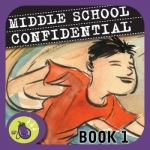
MSC1: Be Confident in Who You Are
Book and Education
App
Now for iPhone and iPad! • “As you prepare for back to school, don't forget the anxiety...[this...

EPIC Adventures - Kids Stories
Book and Education
App
What if we could inspire our children to find the EPIC in the everyday? Opening their eyes to...
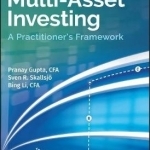
Multi-Asset Investing: A Practitioner's Framework
Pranay Gupta, Sven R. Skallsjo and Bing Li
Book
Despite the accepted fact that a substantial part of the risk and return of any portfolio comes from...
Melanie Caldicott (6 KP) rated The Lost Apothecary in Books
Apr 29, 2021
Thanks to the publishers and NetGalley for the ARe-copy in exchange for this honest review. You can also read my review on my blog - https:roamingthroughbooks.wordpress.com
The Lost Apothecary by Sarah Penner is a novel which switches between the storylines of a female apothecary in the 1790s who sells poisons to women to kill men who have wronged them and the present day, in which Caroline happens upon a clue which leads her to investigate the apothecary’s story.
Well, the idea of an apothecary dispensing poison for women to use for murder was enticing to say the least. This book had the potential to weave a thought-provoking, adventurous tale, developing themes about womanhood, oppression and doing evil for good. Sadly, for me it did not quite meet the mark.
The narratives switch between three characters, Caroline, our present-day historian, Nella, the apothecary, and Eliza, a servant girl who becomes friends with Nella over the course of the book.
As I said, I was expecting this novel to grapple with challenging themes, which could have been very emotive and dark. Yet, it turned out to be just a bland bit of light fiction never dwelling on anything for too long, skimming over the surface of most of the characters, their motives and their reactions and lacking depth on any of the parallel-running plotlines.
It is surprising how a book surrounding multiple murders, historical medicine and herbalism and women trapped in marriages with infidels, letches and rapists could be quite so vanilla. It was a pleasant enough read, but lacked the substance I was hoping for.
I found Nella, the apothecary to be a bit of an enigma. We do learn about her back story and gain some insight into her motives for dispensing the poisons. However, for a woman who was resourceful enough to construct the whole clandestine operation we meet her in a weakened state and I grew frustrated with how she seemed to fall into an oblivious kind of dream-like manner becoming swept along by circumstance with no clear influence on the events or people around her.
Eliza, was a naïve girl who met Nella whilst running an errand for her mistress. It is not really clear why the friendship between Nella and Eliza develops, it seems to be more for the convenience of the plot than due to real concrete reasoning. However, an intimacy develops between them which has the potential to bring new colour to the characters. But yet again, Penner seems to skim the surface of going to any depths and I was left feeling robbed of any insight into the emotional and kindred aspects of their friendship.
Finally, Caroline’s story in the present day brought a different perspective to the themes of womanhood running through this book. She parallels the wronged women of the 18th century by escaping to London on a trip she was supposed to take with her husband to celebrate their tenth wedding anniversary, but was instead travelling alone having discovered her husband had been having an affair.
I initially enjoyed Caroline’s historical investigations as they took her to The British Library and researching documents and newspapers there. As an avid genealogist I appreciated the details Penner gives about the sources of Caroline’s research and the challenges of finding the truth from historical documents.
Yet, again her story became somewhat contrived. It seemed unlikely that she would make some of the discoveries she did and her investigation became constructed around coincidence and unrealistic serendipity. Even the parallel storylines surrounding her relationship and those from the apothecary’s timeline seemed somewhat silly and phoney.
For me, the conclusion of the book yet again did not fully reconcile itself and therefore left me unmoved and feeling somewhat apathetic about the ending and the novel as a whole.
The Lost Apothecary by Sarah Penner is a novel which switches between the storylines of a female apothecary in the 1790s who sells poisons to women to kill men who have wronged them and the present day, in which Caroline happens upon a clue which leads her to investigate the apothecary’s story.
Well, the idea of an apothecary dispensing poison for women to use for murder was enticing to say the least. This book had the potential to weave a thought-provoking, adventurous tale, developing themes about womanhood, oppression and doing evil for good. Sadly, for me it did not quite meet the mark.
The narratives switch between three characters, Caroline, our present-day historian, Nella, the apothecary, and Eliza, a servant girl who becomes friends with Nella over the course of the book.
As I said, I was expecting this novel to grapple with challenging themes, which could have been very emotive and dark. Yet, it turned out to be just a bland bit of light fiction never dwelling on anything for too long, skimming over the surface of most of the characters, their motives and their reactions and lacking depth on any of the parallel-running plotlines.
It is surprising how a book surrounding multiple murders, historical medicine and herbalism and women trapped in marriages with infidels, letches and rapists could be quite so vanilla. It was a pleasant enough read, but lacked the substance I was hoping for.
I found Nella, the apothecary to be a bit of an enigma. We do learn about her back story and gain some insight into her motives for dispensing the poisons. However, for a woman who was resourceful enough to construct the whole clandestine operation we meet her in a weakened state and I grew frustrated with how she seemed to fall into an oblivious kind of dream-like manner becoming swept along by circumstance with no clear influence on the events or people around her.
Eliza, was a naïve girl who met Nella whilst running an errand for her mistress. It is not really clear why the friendship between Nella and Eliza develops, it seems to be more for the convenience of the plot than due to real concrete reasoning. However, an intimacy develops between them which has the potential to bring new colour to the characters. But yet again, Penner seems to skim the surface of going to any depths and I was left feeling robbed of any insight into the emotional and kindred aspects of their friendship.
Finally, Caroline’s story in the present day brought a different perspective to the themes of womanhood running through this book. She parallels the wronged women of the 18th century by escaping to London on a trip she was supposed to take with her husband to celebrate their tenth wedding anniversary, but was instead travelling alone having discovered her husband had been having an affair.
I initially enjoyed Caroline’s historical investigations as they took her to The British Library and researching documents and newspapers there. As an avid genealogist I appreciated the details Penner gives about the sources of Caroline’s research and the challenges of finding the truth from historical documents.
Yet, again her story became somewhat contrived. It seemed unlikely that she would make some of the discoveries she did and her investigation became constructed around coincidence and unrealistic serendipity. Even the parallel storylines surrounding her relationship and those from the apothecary’s timeline seemed somewhat silly and phoney.
For me, the conclusion of the book yet again did not fully reconcile itself and therefore left me unmoved and feeling somewhat apathetic about the ending and the novel as a whole.
Kirk Bage (1775 KP) rated Apollo 11 (2019) in Movies
Jan 22, 2021
This extraordinary documentary exploring the build up, launch and landing of the most famous mission in NASA history, and arguably the pinnacle of human space exploration to date, is a mesmeric and unique experience like no other factual film you have ever seen. You can find it tucked away on Netflix, and I urge you to do so if you ever found yourself wondering for one minute about the moon landing of ’69 and what all the fuss was about.
Director Todd Douglas Miller makes the bold choice to do away with all narrative, cutaway interviews and commentaries, and just shows you what happened in gorgeous detail, with a kind of retro super 8 camera vibe, and a very evocative sountrack. The degree of unseen footage of the entire project is jaw-dropping, especially if there is something of a science or even science fiction geek within you.
Some of what you see and hear is, of course, so iconic that when you see or hear them you feel a sense of deja vu that feels like a dream in the context of the full story. The rest is so amazing to contemplate as something that humanity actually achieved that it is tempting to see it as an odd retro sci-fi movie with quite bad effects and a dull plot; the control room, suits, the rocket itself, the sense of endless patience, anticipation and waiting – you just wouldn’t believe it would work if it was a fiction.
At several points I found myself reminding myself that it wasn’t a fiction, and then marvelling at the entire world that existed at the end of the 60s, and how so essentially different it was, and how ancient it feels now. I wasn’t quite born when all this happened, but it has been very much in my imagination all my life. I wanted to be an astronaut, as did most other kids in the Star Wars era of the late 70s and early 80s, and I only really gave up when I realised that meant being as smart and dedicated as Neil Armstrong and not as reckless and cool as Han Solo. Now I am older, I can appreciate things about it that I never could, and in understanding Human history, it is a riveting chapter.
What we see in this film is how detail and hard work and maths and safety precautions and thousands of team members made this happen. Every nut and bolt, and every drop of sweat and fuel is counted, recounted and considered. At times it seems mundane and without drama, boring even, and then the sheer scale of acheivement and wonder overtakes you as you catch yourself realising how incredible it was that any of this was done at all.
There is no political overtone or background here, no conspiracy theory, no other voice questioning the economic impact or wisdom of the entire endeavour, just a childlike but serious minded wonder at doing something because we could if we set our minds to it. And for that it has a beauty and transcendent elegance that rarely accompanies the subject. By the end, there is really only one word to describe the fact that over 50 years ago three men looked down on the Earthrise and beheld every other living thing in existence in one glance. And that word is: wow!
It is slow, for sure, but only because we have become used to pace and forced drama, from our fictions and our documentaries. Apollo 11 won’t be for everyone in that case, and may even be fairly called dull by some who can’t relate to it in any way. For me it was a trance like epiphany I can’t forget. Highly recommended if you are looking for something fascinating, educational and thought provoking out of your comfort zone and out of this world!
Director Todd Douglas Miller makes the bold choice to do away with all narrative, cutaway interviews and commentaries, and just shows you what happened in gorgeous detail, with a kind of retro super 8 camera vibe, and a very evocative sountrack. The degree of unseen footage of the entire project is jaw-dropping, especially if there is something of a science or even science fiction geek within you.
Some of what you see and hear is, of course, so iconic that when you see or hear them you feel a sense of deja vu that feels like a dream in the context of the full story. The rest is so amazing to contemplate as something that humanity actually achieved that it is tempting to see it as an odd retro sci-fi movie with quite bad effects and a dull plot; the control room, suits, the rocket itself, the sense of endless patience, anticipation and waiting – you just wouldn’t believe it would work if it was a fiction.
At several points I found myself reminding myself that it wasn’t a fiction, and then marvelling at the entire world that existed at the end of the 60s, and how so essentially different it was, and how ancient it feels now. I wasn’t quite born when all this happened, but it has been very much in my imagination all my life. I wanted to be an astronaut, as did most other kids in the Star Wars era of the late 70s and early 80s, and I only really gave up when I realised that meant being as smart and dedicated as Neil Armstrong and not as reckless and cool as Han Solo. Now I am older, I can appreciate things about it that I never could, and in understanding Human history, it is a riveting chapter.
What we see in this film is how detail and hard work and maths and safety precautions and thousands of team members made this happen. Every nut and bolt, and every drop of sweat and fuel is counted, recounted and considered. At times it seems mundane and without drama, boring even, and then the sheer scale of acheivement and wonder overtakes you as you catch yourself realising how incredible it was that any of this was done at all.
There is no political overtone or background here, no conspiracy theory, no other voice questioning the economic impact or wisdom of the entire endeavour, just a childlike but serious minded wonder at doing something because we could if we set our minds to it. And for that it has a beauty and transcendent elegance that rarely accompanies the subject. By the end, there is really only one word to describe the fact that over 50 years ago three men looked down on the Earthrise and beheld every other living thing in existence in one glance. And that word is: wow!
It is slow, for sure, but only because we have become used to pace and forced drama, from our fictions and our documentaries. Apollo 11 won’t be for everyone in that case, and may even be fairly called dull by some who can’t relate to it in any way. For me it was a trance like epiphany I can’t forget. Highly recommended if you are looking for something fascinating, educational and thought provoking out of your comfort zone and out of this world!
